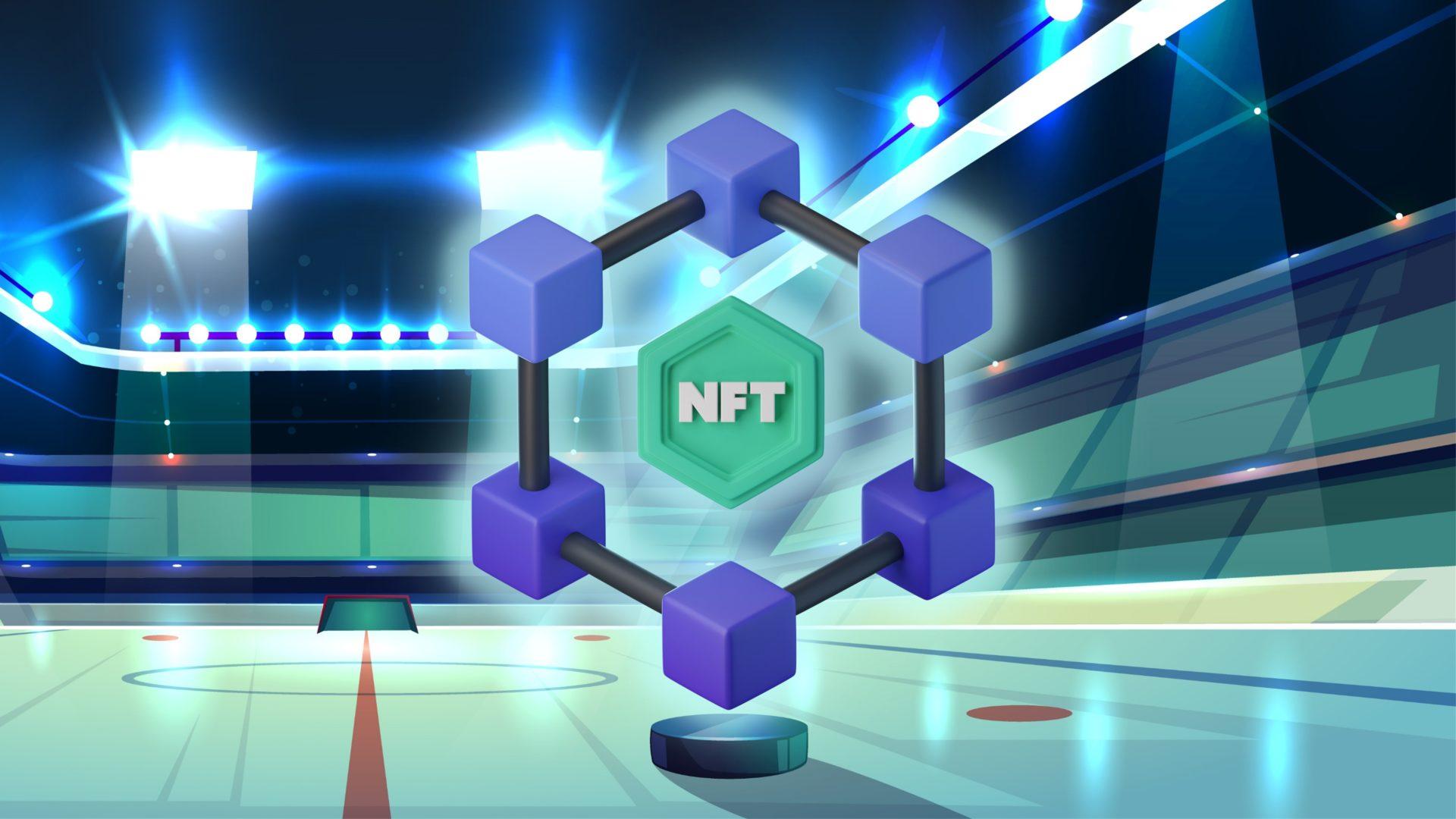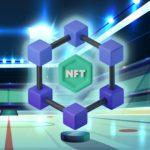Blockchain technology, cryptocurrencies, and NFTs are revolutionizing all kinds of industries, and sports are included. NFTs have already started to change the industry and are doing to sports what the internet did for the industry. Sports NFTs enable new features that fans, teams, and players can take advantage of, and fundamentally change how sports handle business decisions.
Locker Token leverages this up and coming tech to empower fans, teams and players to change sports. The use of blockchain tech would mean a fundamental change in how sports are organized, expand the ways fans interact with their favorite teams, and even how sports organizations select players.
What Is An NFT
NFT stands for non-fungible token. It is an analogous term to describe crypto assets like Bitcoin, but with a few key differences. As the term implies, NFTs are tokens, meaning they operate on a blockchain, a decentralized ledger network designed to keep track of transactions.
Unlike their plain cryptocurrency counterparts, NFTs represent unique assets, such as a work of art, digital content, or media. An NFT is an immutable digital certificate of ownership and authenticity for specific physical or digital assets. As mentioned above, NFT are like cryptocurrencies like Bitcoin and Ethereum. However, there are key differences. The main properties of an NFT are:
- Uniqueness
- Indivisability
- Immutability
A fundamental characteristic of NFTs is originality or uniqueness. Non-fungibility means the ability to be exchanged for something of equal value. Each non-fungible token is one-of-a-kind and cannot be duplicated. A ticket to a hockey game, for example, is non-fungible in that it specifies a specific seat, on a particular game, at a specified time. They cannot be traded for something equal because it is unique. Only one of that exact ticket exists. There may be more tickets to the game, and even in the same section, but not to that seat. It is this feature that powers the capabilities of NFTs.
NFTs differ from cryptocurrencies in that they are indivisible, meaning that although they operate on a blockchain like a cryptocurrency, they cannot be broken down in the same way a dollar can be broken down to two stacks of 50¢ coins. Another different example of this is a sports trading card.
Finally, non-fungible tokens are immutable. The immutability property of digital assets like NFTs and cryptocurrencies to be “immortalized” on the blockchain. Once an NFT is “minted” or published on the blockchain, those NFTs cannot be changed or tampered with because of how blockchain networks operate.
What Is The Hype for NFTs?
While NFTs have been around since 2017, they became massively popular in 2021 when the artist known as “Beeple” auctioned off an NFT for $69 million. Since then, many NFT projects like the Bored Ape Yacht Club collection have risen to fame, selling for up to $3.4 million.
What’s this have to do with sports? The rise in popularity of the technology NFTs have caught the eyes of many industries, the sports industry included. NFTs can prove to be a transformation to the sports industry.
The world’s largest audit and assurance organization, Deloitte Global, expects that NFTs for sports media would produce more than $2 billion in transactions in 2022 to double the amount in 2021. According to the audit company, approximately 4-5 million sports fans worldwide would have acquired or been given NFT sports memorabilia by the end of 2022. This means that the impact of NFTs on sports will be difficult to miss.
How Do NFTs Improve the Sports Fan Experience?
Crypto has garnered much attention in the sports industry in recent years, with Hockey NFT trading cards, NBA cards, and Fan Tokens. The first use case that comes to mind when melding the worlds of crypto and blockchain, and sports business is the use of an actual cryptocurrency. What has been referred to as “fan tokens” grant special perks to fans, like discounts on purchasing products like game tickets and grant special access to merchandise or special access to physical or digital assets. This type of use case for crypto has gained a lot of popularity.
When it comes to Sports NFTs, they can provide new methods for ardent fans to support and interact with their favourite teams. There are more practical uses for sports NFTs as NFTs evolve, all ready to alter the sports industry sector in new ways. Loyal fans may show their support by holding sports NFTs, while sports teams and athletes can provide long-term value to supporters through the expanding utility of NFTs.
Digital Collectibles
Sports collectibles are innovative ways for fans to collect NFT trading cards of their favorite players, even in-game moments and highlights. As an example, Locker Token leverages blockchain technology to digitalize traditional sports trading cards. Each NFT is unique, making an excellent basis for digital trading cards that can capture the likeness of each player, like the baseball cards of yesteryear.
Being that these digital assets are on a blockchain and not paper like their physical counterparts, sports NFTs can capture more media other than player likeness but can capture video of in-game highlights. For example, in 2021, a tokenized video of LeBron James emulating a Koby Bryant slam dunk was auctioned for approximately $400,000
In Locker Token’s NFT marketplace, fans can trade player trading cards and NFT video snippets of game highlights in the form of tokens.
Although it may appear nonsensical to pay for an NFT version of a video clip that anybody in the world may view for free, it can be argued that it is unreasonable for a printed card to sell for seven-figure sums when the card’s fundamental worth is nothing.
Branding
Individual athletes can create their own NFT collections in order to engage their fan base. Athlete NFTs, like trading cards, create a link between the player and their committed fans. Fans are likely to collect keepsakes of their favourite players and post them on social media to show off their team colours. Athletes may also protect their intellectual property rights by issuing NFTs themselves. As NFT developers, they can collect royalties on resales of their NFTs, providing a new stream of income for players.
Virtual Access Tokens
Beyond digital memorabilia, NFTs may be used as virtual access tokens to live sports games. For example, fans willing to pay for NFT tickets might obtain VIP videos from the stadium’s player cameras or listen in on behind-the-scenes chats between the squad and coaches. Fans may also connect with other sports players and fellow fans in the metaverse or spend NFTs to sponsor their favourite athletes. The NFT tickets will also allow international fans who are unable to attend the games in person to take part in this one-of-a-kind watching experience.
Season Ticket Member NFTs
Several sports organizations have already begun to experiment with collectible NFTs season tickets and how digital tokens enable ticket holders, particularly season ticket members with access to additional material in the real world or surrounding the stadium experience. Moreover, this may allow clubs to serve their season ticket queue. Waitlist members might get the same digital benefits as season ticket members for a nominal yearly charge.
New Source Of Revenue For Teams
Running a sports club is not cheap, this sports NFTs can supplement teams’ merchandise offerings, providing teams with another source of revenue to meet their business needs. Traditionally, most of a sports business’s revenue comes from ticket and merchandise sales, television rights, and sponsorships. As mentioned above, teams using NFTs can tokenize digital game tickets, transmit live games to token holders, or conduct holder-only physical events or even digital events in the metaverse.
Scouting
As previously mentioned, non-fungible tokens can provide a way to make player trading cards. On those digital playing cards, NFT creators add a feature that tracks player stats, rankings, and such data, providing a whole picture of the player’s capabilities. With this functionality, scouts wouldn’t need to travel to far away places to look for talent. Rather, they could see player capabilities recorded on the blockchain.
Locker Token is now using such use-case of NFTs to help young professional Hockey players get noticed by scouts in order to fulfil their dream of playing for some of the worlds’ finest Hockey players.
Gaming
For gaming purposes, sports NFTs can be used in online fantasy sports. There are currently fantasy leagues gaining traction among gamers that incorporate NFTs into the gameplay. Gamers can buy, acquire, and trade NFT player cards, which are then used to manage a virtual team and participate in tournaments. The NFT cards gain or lose points based on the performance of the football players in actual matches.
Governance
While in the “traditional” world of crypto, governance is delegated to cryptocurrency token holders, sports NFTs could supercharge fan engagement with a team by enabling limited business management or decision-making, such as choosing new team colours, designs, and general parameters fans care deeply about.
How Locker Token Empowers The Sports Industry
Locker Token is a sports-themed blockchain solutions company aiming to bridge the worlds of NFT assets and blockchain by providing blockchain solutions to help fans, teams, and players take advantage of this revolutionary way of organization of the sports industry is done.
Locker Token provides a platform that enables fans, teams, and players to interact with one another. While the platform has a native cryptocurrency, LOCKER, it’s the Locker Token NFTs that make the platform special.
NFTs make digital assets collectible. Teams and players can make use of all NFTs they have to offer their business by providing fully customizable non-fungible tokens. Locker Tokens provide full autonomy in the NFT creation process. From a menu, teams and players can add media such as images and video to create unique digital assets and collectible NFTs. Once all the parameters are set in the NFT creation menu, they can instantly be “minted” or published on the blockchain for fans to purchase. The process is so simple that teams and players can complete this process in the middle of a game from their mobile devices.
How do I buy a Sports Collectible NFT?
Locker Token makes buying sports NFTs easy with the Locker Token App. Locker Token offers team members the capability to mint their own NFTs from there, and fans can purchase NFTs directly from a menu in the app.
- Open App
- Set up a wallet
- Purchase ETH or MATIC For Gas
- Select Desired NFT From Menu
- Purchase NFTs
For More information on how to purchase Locker Token NFTs, See our How to Buy NFTs guide.
Conclusion
NFTs are redefining the idea of sports memorabilia and sports business by allowing fans to own their favorite players’ cards and game video footage. They allow sports clubs and teams to develop and sustain long-term ties with supporters.
NFTs are also transforming the way sports organizations connect with their fans, allowing teams to increase fan engagement by providing unique member benefits and, in certain cases, a means to vote on critical governance issues.











